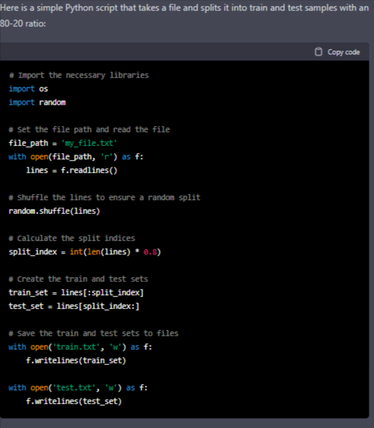
Open Science and its Discontents https://ronininstitute.org/open-science-and-its-discontents/1383/ 2016 article from Alex Lancaster
"Arguments for open-science made in response to the conservative critique tend to assume that release of more data, code, papers is a pure good in and of itself, and downplay the political economy in which they are embedded"
Foolish me. I spent the weekend worrying about the effects of large language models on our educational mission.
Apparently it take a true visionary like billionaire venture capitalist, post.news backer, and Musk-stan Marc Andreessen to see that the real problem in the AI space is that these academic fields like AI Ethics and AI Safety are trying to CENSOR perfectly innocent algorithms that are simply minding their own business and preserving or exacerbating societal injustices.
This appears to be derived from the following passage in Either/Or, Part I:
"Aren’t people absurd! They never use the freedoms they do have but demand those they don’t have; they have freedom of thought, they demand freedom of speech."
You can check it out on page 37 of this translation: https://img1.wsimg.com/blobby/go/36ba381a-9850-4782-a471-dbe0bfa3c3b6/downloads/Either_or%20-%20S%C3%B8ren%20Kierkegaard%20(pdf).pdf?ver=1611846256813
New study: "Between 2018 and 2021, the excess death rate for Republican voters [from #COVID19] was 5.4 percentage points, or 76 percent higher, than that of registered Democrats. The majority of the difference, though, was concentrated after the introduction of COVID-19 #vaccines: after vaccines became available, the death rate gap between #Republicans and #Democrats widened from 1.6 percentage points to 10.4 percentage points."
https://yaledailynews.com/blog/2022/12/02/yale-study-identifies-partisan-disparity-in-excess-covid-19-death-rates/
@tripu Same!
An honest question born of ignorance: Who expects DNNs to be explanatory models for psychological phenomena? They seem fundamentally unsuited to such a task.
A man feeds swans in the snow.
#interesting #cool #amazing #incredible #pics #photos #rare #rarepics #rarephotos #amazingshots #photography #swan #swans #snow #animals #nature #animal
“I was born in Bayonne, New Jersey. I grew up in the projects. I never went anywhere. But I have lived a thousand lives and I’ve loved a thousand loves. I’ve walked on distant worlds and seen the end of time. Because I read.” -- George R.R. Martin, Attributed (I could not confirm a source)
"Archaeologists have found two dozen bronze figures, more than 2,000 years old and perfectly preserved in the hot mud and waters of an ancient, sacred pool [in San Casciano dei Bagni, Italy]."
https://www.npr.org/2022/12/03/1138904735/italy-ancient-bronze-statues-discovery-tuscany
@jhaluska I feel I must agree. I asked ChatGPT to write a python script that trains xgboost using oversampled training on the minority class and presents the ROC-AUC and PR-AUC of the model. #ChatGPT, #MachineLearning, #OpenAI, #Python
This robot confabulates like a human
As a philosopher, I am often asked about the nature of truth. What is truth? How do we know what is true? These are questions that have puzzled philosophers for centuries, and they continue to be the subject of intense debate and discussion.
Eric Schwitzgebel has gotten GPT-3 to write blog posts in his style, so I asked OpenA
https://www.fecundity.com/nfw/2022/12/03/this-robot-confabulates-like-a-human/
RT @DrYohanJohn
"Very nice video debunking the idea that life is solely about competition and harsh struggle."
Last bit of ChatGPT fun for the evening. I asked it to write an argument for the government regulating artificial intelligence.
I asked ChatGPT to write a poem about self-organization and fractals.
I asked [ChatGPT](https://openai.com/blog/chatgpt/) (a large transformer-based language model created by OpenAI) to write a python script that takes a file and splits it into train and test samples with a 80-20 ratio.
Friction, a YouTube channel devoted to philosophical interviews, has posted [a supercut](https://www.youtube.com/watch?v=CnnRKkgAdsY) of philosophers (and Steven Pinker) explaining the value of philosophy.
My team at work just launched new research on the #TwitterMigration: We analyze which platforms are growing - especially #Mastodon, #Tumblr & #Post.
We look at which sites users are adding to their Twitter bios, posting to their friends about & downloading apps for.
Please do boost this, and love to hear any comments or feedback on it!
Download it here:
https://is.gd/lqGw9q
In [a recent article](https://www.theatlantic.com/magazine/archive/2022/12/holocaust-remembrance-lessons-america/671893/) Clint Smith, author of _How the Word is Passed_, writes about what America can learn from Germany's memorialization of the murders of Jews, Roma, gays, and other victims of the holocaust. It is an excellent reflection on the use and abuse of memorialization by states and peoples.
- Home
- Portland, OR
- Website
- http://www.johnnylogic.org/
Data scientist, fraud researcher, bibliophile, humanist.








